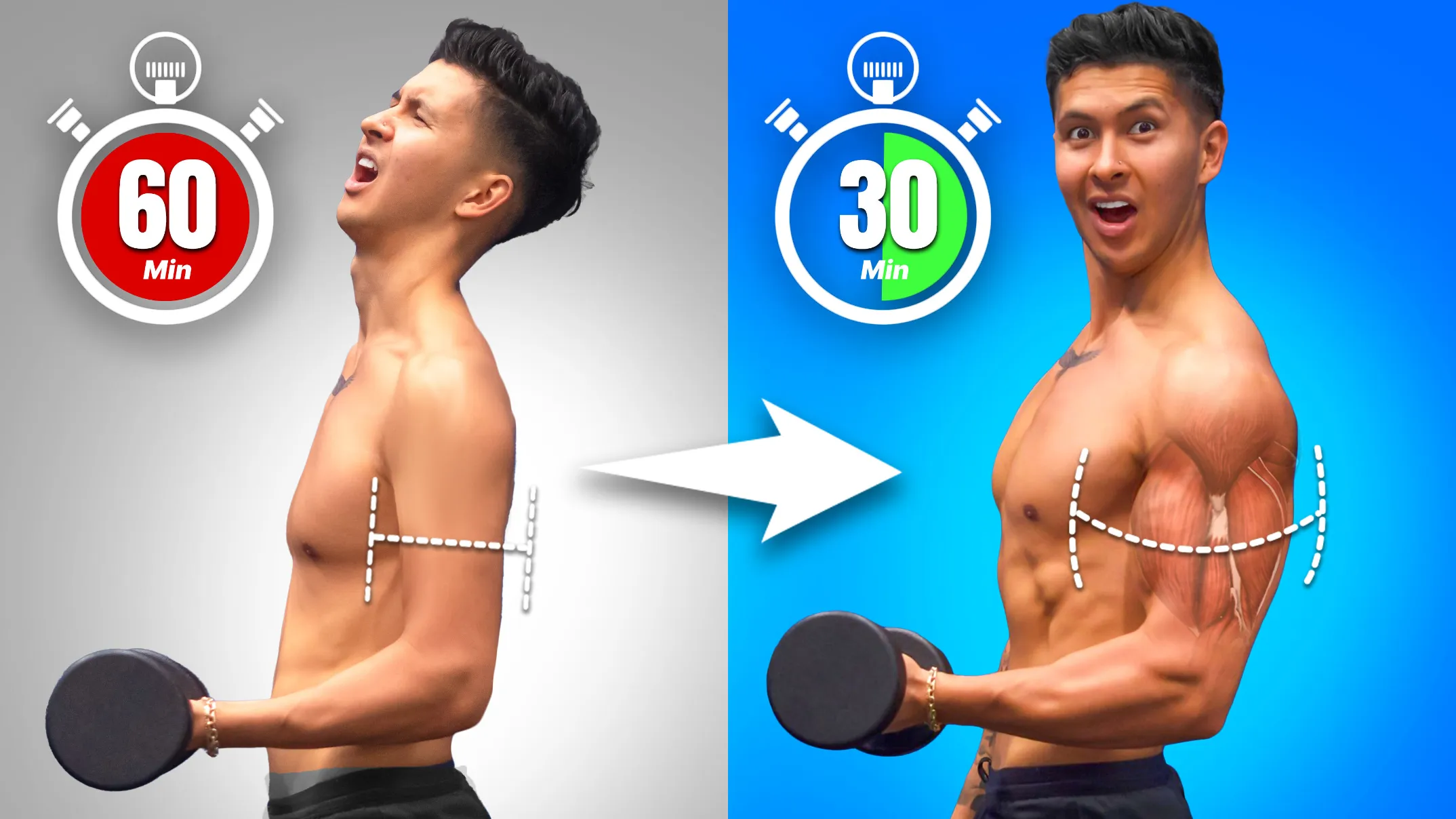
Building muscle, also known as muscle hypertrophy, involves a combination of consistent resistance training, adequate nutrition, sufficient rest, and strategic recovery. It's a physiological adaptation where muscle cells increase in size and strength due to progressive overload and repair processes.[1] [2]
According to www.iAsk.Ai - Ask AI:
To effectively build muscle, several key strategies should be implemented:
Resistance Training Principles
Consistent and challenging resistance training is the cornerstone of muscle growth.[3] This involves lifting weights or using resistance bands to stimulate muscle fibers. For optimal hypertrophy, aim for 3 to 6 sets of 6 to 12 repetitions per exercise, selecting a weight that makes the last few repetitions challenging but allows for good form.[4] [5]
- Progressive Overload: To continually build muscle, you must progressively increase the demands on your muscles over time.[6] This doesn't always mean lifting heavier weights; it can also involve increasing repetitions, sets, decreasing rest time between sets, or improving exercise form and time under tension.[6] [7] For instance, if you can comfortably perform 8 repetitions, increase the weight so that 8 repetitions are challenging again.[3]
- Exercise Selection: Focus on multi-joint (compound) exercises that engage multiple muscle groups simultaneously, such as squats, deadlifts, bench presses, and pull-ups. These movements allow you to lift heavier weights, which is a key stimulus for muscle growth.[6] Incorporate full-body workouts at least twice a week, or split routines focusing on upper and lower body, ensuring all major muscle groups are targeted.[3] [4]
- Time Under Tension: Control the lifting and lowering phases of each repetition. A recommended tempo is three seconds to lift, a one-second pause, and three seconds to lower the weight. This increases the time your muscles are under tension, promoting greater muscle tear and subsequent rebuilding.[3] [7]
- "Stretch" Technique: Recent research suggests that training muscles in their stretched position can significantly enhance growth. This involves choosing exercises that maximize muscle stretch (e.g., dumbbell flyes over barbell bench press for chest) and ensuring the exercise is most challenging in that stretched position (e.g., preacher curls for biceps). Incorporating partial reps in the stretched position, especially for exercises that are hardest in the contracted position (like calf raises or back exercises), can also be highly effective.[8]
Nutritional Support
Proper nutrition is crucial for fueling workouts, repairing muscle tissue, and promoting growth.[9]
- Caloric Surplus: To gain muscle, you need to consume more calories than your body burns, creating a caloric surplus. A surplus of 250-500 calories per day is generally recommended to gain muscle without excessive fat.[10] [11] For men, this might be around 2,800–3,200 calories/day, and for women, 2,200–2,500 calories/day, adjusted for activity level.[12]
- Protein Intake: Protein provides the amino acids necessary for muscle repair and synthesis. Aim for 1.6 to 2.2 grams of protein per kilogram of body weight (0.7 to 1.0 grams per pound) daily.[12] [10] Distribute protein intake throughout the day, ideally 25-35 grams per meal, as the body may not absorb much more than 40 grams in one sitting.[4] Excellent sources include eggs, salmon, chicken breast, Greek yogurt, lean beef, shrimp, soybeans, cottage cheese, turkey breast, tuna, tilapia, beans, and protein powders (whey, casein, soy, pea).[9] [12]
- Carbohydrates and Fats: Don't neglect carbohydrates and healthy fats. Carbohydrates provide energy for intense workouts and replenish glycogen stores, while fats are essential for hormone production and overall health. Include complex carbohydrates like oats, sweet potatoes, brown rice, and quinoa, and healthy fats from avocados, nuts, and olive oil.[9] [4]
- Hydration: Staying well-hydrated is vital for muscle function and recovery.[10] [12]
Rest and Recovery
Muscle growth occurs during rest, not during the workout itself.[6]
- Adequate Sleep: Aim for 7 to 9 hours of quality sleep per night. During sleep, your body releases growth hormones and repairs muscle tissue, making it a critical component of muscle building.[7] [10]
- Rest Days: Allow at least 48 hours of rest for a muscle group before training it again.[3] This prevents overtraining and allows muscles to recover and grow stronger.[4] Active recovery, such as light cardio or stretching, can also aid in recovery on rest days.[4]
Additional Considerations
- Supplements: While whole foods should be prioritized, certain supplements can support muscle growth. Whey protein, branched-chain amino acids (BCAAs), L-arginine, L-glutamine, and creatine monohydrate are commonly used to enhance protein synthesis, recovery, and strength.[12]
- Consistency and Patience: Building muscle takes time and dedication. Noticeable gains can typically be seen within a few weeks to several months, with untrained individuals gaining 1-2 pounds of muscle per month initially.[13] [14] The rate of muscle gain slows as you become more experienced.[13]
By integrating these strategies, individuals can optimize their efforts to build muscle safely and effectively.
Authoritative Sources
- How to Build Muscle. [Cleveland Clinic]↩
- What Is Muscle Hypertrophy?. [Men's Health]↩
- Building better muscle. [Harvard Health Publishing]↩
- How to Build Muscle. [Cleveland Clinic]↩
- Can You Build Muscle Fast? | This Is How Long It Really Takes. [Myprotein]↩
- The 10 Principles of Building Muscle. [Men's Health]↩
- How To Gain Muscle Almost Twice As Fast (New Workout Technique/Method!). [Built With Science]↩
- How To Gain Muscle Almost Twice As Fast (New Workout Technique/Method!). [Built With Science]↩
- The best foods to build muscle. [Healthline]↩
- Can You Build Muscle Fast? | This Is How Long It Really Takes. [Myprotein]↩
- Eat to Gain Muscle. [Dr. Axe]↩
- Eat to Gain Muscle. [Dr. Axe]↩
- How Long Does It Take to Build Muscle?. [Men's Health]↩
- How long does it take to build muscle?. [Healthline]↩


Answer Provided by iAsk.ai – Ask AI.
Sign up for free to save this answer and access it later
Sign up →